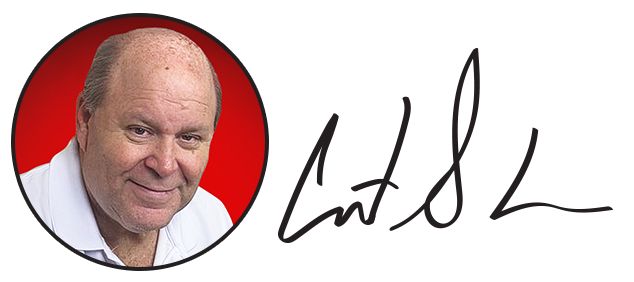
The job search process for mid to senior business professionals is far more complex than many realize. While entry-level job seekers often face a straightforward path of resume submissions and interviews, seasoned professionals navigate a landscape filled with nuanced challenges. Misconceptions about how to approach the search, where to invest time, and what really influences hiring decisions can hinder even the most accomplished executives. Below are some of the most misunderstood elements of a mid to senior business professional's job search and how to address them effectively.
1. The Hidden Job Market Is Larger Than You Think
One of the most common misconceptions is that job postings on LinkedIn, Indeed, or company websites represent the full range of available opportunities. In reality, a significant portion of senior-level roles are filled through networking, referrals, and executive search firms before they ever reach the public eye. Many professionals waste time applying online without engaging in the strategic networking necessary to access these hidden opportunities.
What to Do Instead: Invest time in networking by reconnecting with former colleagues, mentors, and industry peers. Attend industry events, participate in relevant professional groups, and make targeted outreach efforts to decision-makers in your field.
2. Your Resume Matters Less Than You Think
Many senior professionals agonize over their resumes, believing that a perfectly crafted document will open doors. While a strong resume is necessary, it’s often not the primary factor in landing a job. At the executive level, hiring managers and recruiters place greater emphasis on reputation, industry relationships, and the candidate’s ability to demonstrate immediate value.
What to Do Instead: Rather than over-focusing on resume tweaks, shift attention to building a strong LinkedIn presence, engaging with thought leadership content, and ensuring that former colleagues and mentors can vouch for your expertise and contributions.
3. Recruiters Work for Employers, Not for You
Many job seekers assume that executive recruiters or headhunters are actively searching for jobs on their behalf. In reality, recruiters work for hiring companies, not candidates. Their primary objective is to find the best possible match for their client’s needs, not necessarily to help you land a job.
What to Do Instead: Instead of relying solely on recruiters, proactively identify target companies, reach out to key decision-makers, and position yourself as a thought leader in your industry. If you do engage with recruiters, understand their role and build long-term relationships rather than expecting immediate results.
4. Your Online Presence Can Make or Break Your Search
Many mid to senior professionals underestimate the power of their online presence. Hiring managers and recruiters routinely research candidates online before reaching out. A weak LinkedIn profile, lack of industry engagement, or even outdated social media activity can send the wrong signals.
What to Do Instead: Optimize your LinkedIn profile with a compelling headline, strong summary, and clear showcase of accomplishments. Regularly share industry insights, comment on relevant discussions, and ensure that your online presence aligns with your professional brand.
5. Job Search Effort is Often Misjudged
Many professionals believe they are putting in significant effort into their job search when in reality, they are engaged in passive or inefficient activities. Sending out a few applications, tweaking a resume, or waiting for recruiters to call is not enough.
What to Do Instead: Treat the job search like a full-time job. Set daily and weekly goals for networking, outreach, and skill-building. Keep track of progress, analyze what’s working, and adjust strategies accordingly.
6. Overqualification Can Be a Real Barrier
Many experienced professionals assume that their extensive background makes them the ideal candidate for roles they apply for. However, being "overqualified" can sometimes be a drawback. Employers may hesitate to hire someone with too much experience due to concerns about salary expectations, longevity in the role, or adaptability to a new corporate culture.
What to Do Instead: When applying for roles where overqualification may be a concern, emphasize adaptability, willingness to contribute at different levels, and motivation for pursuing the opportunity. Tailor messaging to highlight alignment with company needs rather than simply listing accomplishments.
7. Age Bias Exists, But It Can Be Overcome
While age discrimination is illegal, the reality is that some employers may harbor biases against older candidates. Assumptions about adaptability, energy levels, or technological proficiency can impact hiring decisions.
What to Do Instead: Combat age bias by staying up-to-date with industry trends, continuously learning new skills, and demonstrating technological proficiency. Showcase adaptability, highlight recent accomplishments, and emphasize your ability to work across generations.
8. Hiring a Career Coach Isn’t a Sign of Weakness—It’s a Competitive Advantage
Many executives hesitate to seek professional job search guidance, believing that they should be able to navigate the process on their own. However, even the most successful professionals benefit from objective feedback, accountability, and strategic insights.
What to Do Instead: Consider working with a career coach who specializes in executive job searches. A good coach can help refine positioning, improve networking strategies, and provide critical feedback to accelerate success.
The job search process for mid to senior business professionals requires a strategic, proactive approach. Understanding and addressing these common misconceptions can significantly improve job search outcomes. By focusing on networking, online presence, targeted outreach, and continuous learning, professionals can position themselves effectively in today’s competitive job market.
If you’re struggling in your job search, it may be time to reassess your strategy and adopt a more intentional, informed approach. The key is to work smarter, not just harder.

Curt Skene
FOUNDER
Career Network Club